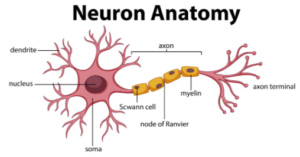Overcome Your Fear of Twitching Muscles Once and for All!
Here is the sequence of events:
1) You notice a muscle twitching and it won’t stop. It may be under your leg while you’re sitting; on the arch of your foot; a whole toe; a whole finger; below your lower lip; in the chest, torso, upper arm, shoulder…it’s just twitching away.
2) In this day and age of the Internet, you do a search on something like, “Why does my muscle keep twitching?”
3) On the first page of search results are links to ALS sites; you learn that muscle twitching is a well-documented symptom of this merciless, incurable disease.
4) Your “fasciculations” now intensify, becoming more frequent and spreading throughout the body.
So if you first began noticing the twitching in your left lower leg, it’s now spreading up the leg, then to the other leg, and it just seems that your entire body’s muscles are acting up.
5) You now spend hours and hours on the Internet, and every time you find some reassuring information, the next link contradicts the good news that you just read and you’re back at ground zero: fear that you have only two to five years to live.
Scared out of Your Wits About Your Twitching Muscles
“I would say that there is a wealth of knowledge available about neurologic diseases including ways to identify and treat them,” begins Mitzi J. Williams, MD, clinical neurologist with Morehouse School of Medicine and clinical advisor for the Multiple Sclerosis Foundation.
“Because there is so much information available, it can cause one to think that conditions occur more commonly than they do.
“For instance, there are an estimated one million people in the U.S. living with MS — out of an overall population of 325 million people.
“ALS is an even rarer condition and some estimate that there may be 20,000 people living with ALS in the U.S. at any given time.
“Though they have gained recognition through various campaigns to raise awareness and funds for research, they are not at all common diseases.
“Reading and informing yourself about conditions related to your symptoms such as muscle twitching is important, but it is also important to pair that knowledge with medical expertise for diagnosis.
“If you have been seen by a medical professional and have muscle twitching without weakness or other signs of neurologic impairment, it is not likely either of these diseases.”

Below are links to articles that will give you a lot of very helpful information.
I know what it’s like; I’ve been there, and I have made sure that my articles will leave you feeling much more empowered with knowledge—and most likely, with the reassurance you’ve been so desperately seeking.
Where are you twitching?
……………………………………………………………………………………………..
Muscle Twitching F.A.Q.
The areas where a twitching muscle is most likely to be visible include the eyelid, an entire finger or toe, the quadriceps area and the chest region. Why you see some fascics and is this worrisome?
Sometimes a muscle twitch looks more like something under the skin making it jump. Here is what that means.
Another name for harmless muscle twitching is benign fasciculations. If you’re suffering from a lot of this, the cause may be anxiety.
As you inspect the front of your legs for any signs of atrophy (which may be a symptom of a neurological disease), you may spot a dent or groove that you swear was never there before. There is a benign explanation,
Do you exercise a lot or hard? Lengthy aerobics sessions, or vigorous cardio activity and even strength training, can cause muscles to twitch afterwards. A doctor explains why in this article.

Dr. Williams is author of “MS Made Simple: The Essential Guide to Understanding Your Multiple Sclerosis Diagnosis,” available on Amazon. She is a member of the American Academy of Neurology.
 Lorra Garrick is a former personal trainer certified by the American Council on Exercise. At Bally Total Fitness she trained clients of all ages for fat loss, muscle building, fitness and improved health.
Lorra Garrick is a former personal trainer certified by the American Council on Exercise. At Bally Total Fitness she trained clients of all ages for fat loss, muscle building, fitness and improved health.
.












